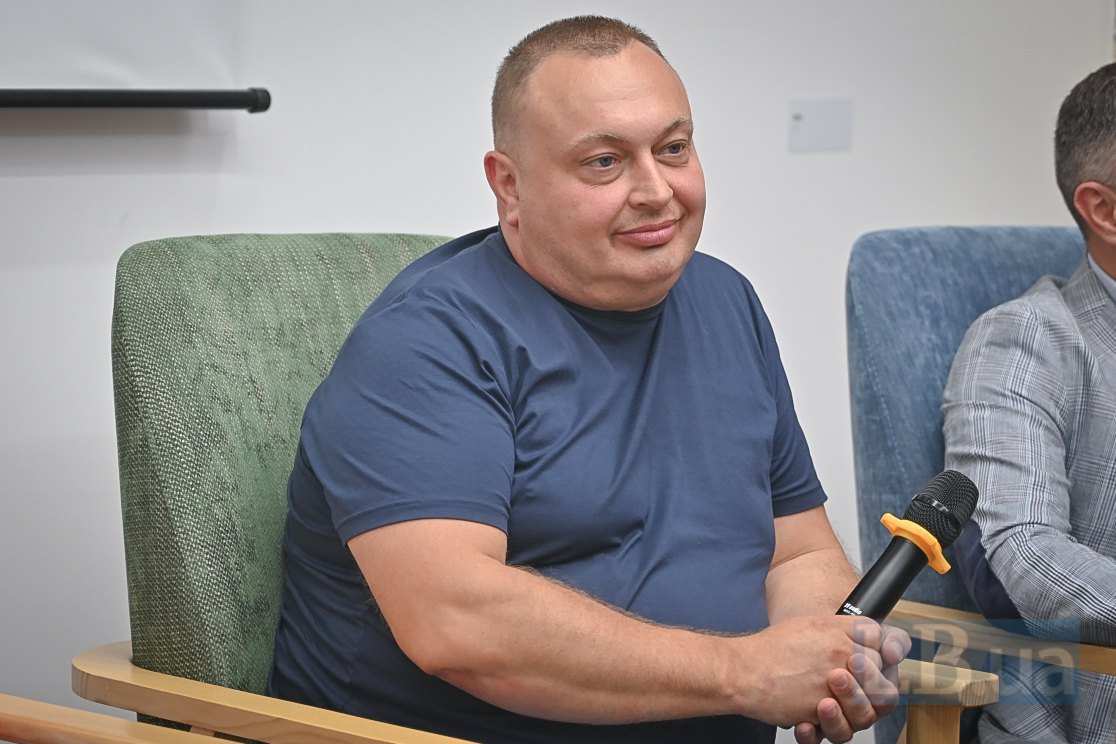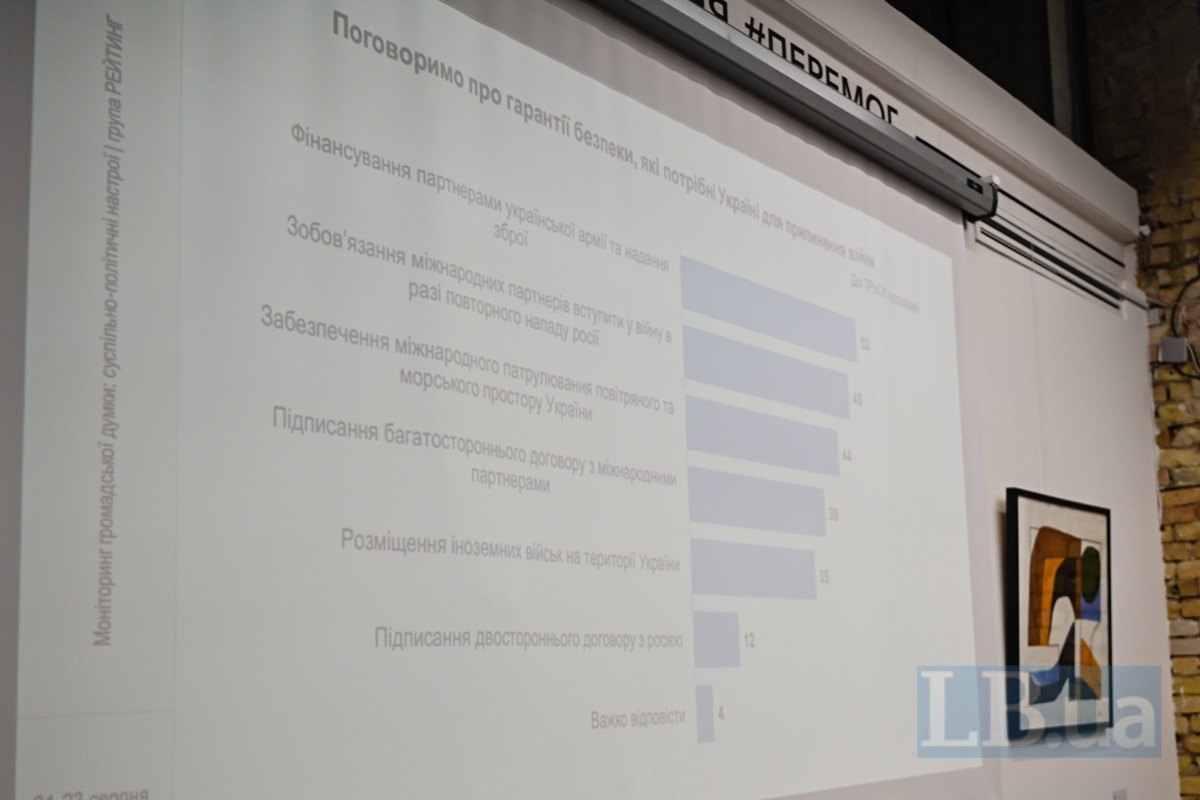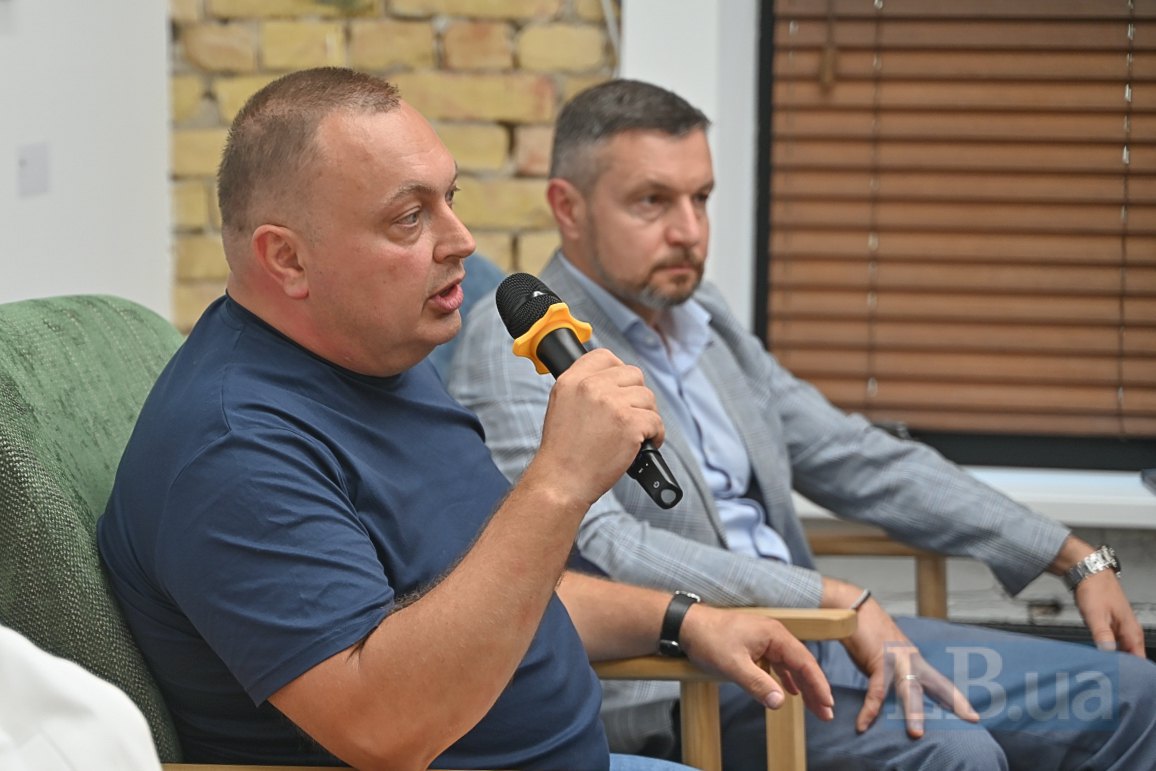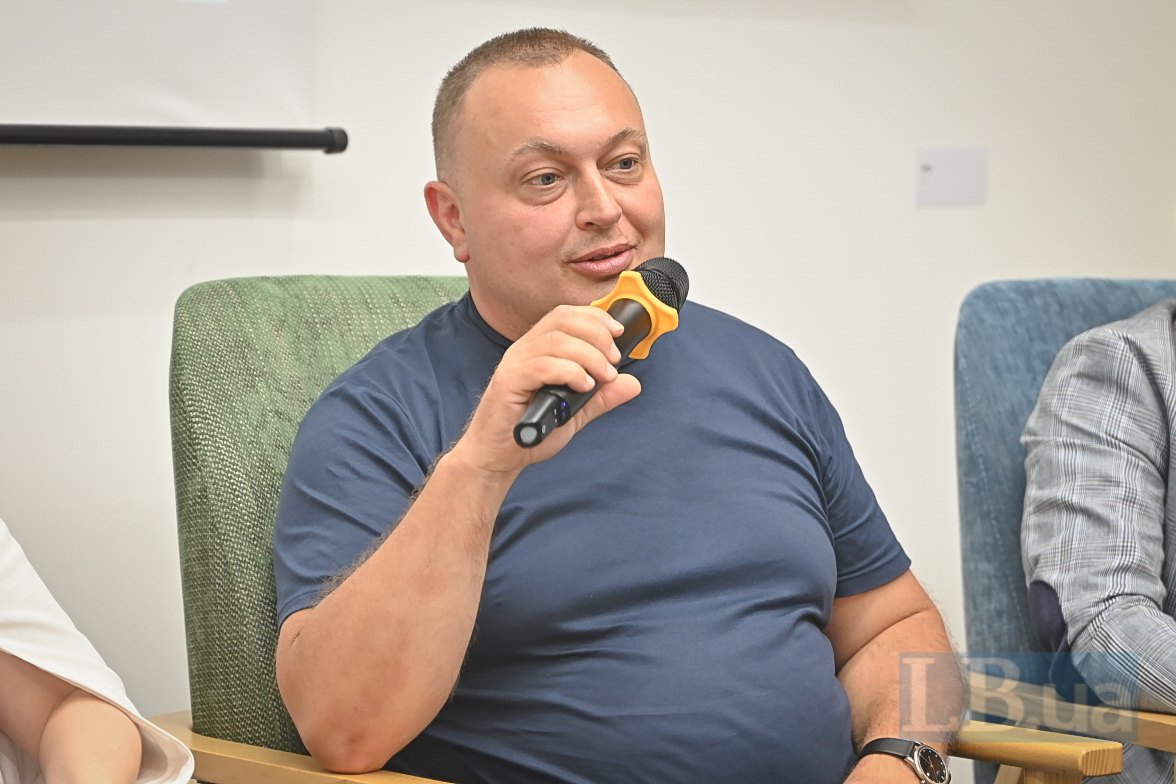
If at the end of 2022 — beginning of 2023, 73% of Ukrainians saw the return of Crimea and Donbas as the desired scenario for the development of the war, today 82% are in favour of seeking a compromise in negotiations, 20% of them — in direct negotiations with Russia, says Oleksiy Antypovych.
‘In other words, 80% see negotiations as the real way to resolve the war, and only 11% see continuing military action. This is where society stands on the issue of war. But the most important thing about these figures,’ Antypovich emphasises, ‘is that there is no such thing as “peace at any price”.’
Ukrainians continue to have a consistently negative attitude towards Russians. 60% do not see any possibility of restoring relations with representatives of the Russian Federation, while another 20% see such a possibility in 20-30 years. This means that currently, 80% of the population does not trust Russians and, accordingly, does not trust any negotiations with them.
"So what? We need international security guarantees. These security guarantees can include anything, fantasising about NATO or European troops in Ukraine. But the first thing Ukrainians say is: “Give us funding for the Ukrainian army and guarantees of weapons”. The deployment of foreign troops is the last resort, a long-term agreement with Russia — 12%, because no one trusts the Russians. If we take our other studies on what Ukrainians are willing to do for victory, for their future, we see that responsibility for themselves and their country comes first. So give us money and weapons, and we will fight ourselves and defend our territory ourselves," said the sociologist.

Another study — for the Westminster Foundation for Democracy, says the head of the Rating group — shows that about a quarter of Ukrainians already support a radical political niche; and that there will be challenges between those who have gone abroad and those who have stayed.
"An analysis of the values of Ukrainians in Ukraine shows that the demand for personal and national security is at its highest — this is the first thing we need. People abroad, on the other hand, have twice as much demand for comfort as Ukrainians in Ukraine. In other words, people have traded state and national security for their own comfort, which is why they left," notes Oleksiy Antypovych.
The second, almost equally important value is freedom.
"The most important thing for Ukrainians has traditionally been family. And this pushes us towards security and freedom. This freedom is also our character, our peculiarity, if you will. And responsibility, independence and mutual assistance help us achieve security and freedom. Even mutual assistance, then independence. Independence means that we will stand on our own battlefields, just give us money and weapons.
And mutual assistance is all of this: volunteering, uniting, helping, the absence of mutual quarrels not only between Ukrainians as such, but also between politicians whom Ukrainians look up to," the sociologist outlined the trends.
The factors that unite society are victory, war and the enemy, the sociologist asserts. However, the influence of disinformation is a threat to unity — 59% of the population is susceptible to it (and those who claim they can distinguish disinformation rely solely on their intuition), so the information challenge is extremely serious.
Antypovych also notes that much has changed in the three years of war. For example, today the military is fighting not for power or for Mother Ukraine, but for their comrades.

Surprisingly, according to sociologists, Ukrainians have somewhat missed elections and are eager for new political forces. And if elections are held, people will come and vote. But now, during the war, society is against holding elections.
"The requirements for future new politicians or new political forces remain unchanged: professionalism, education, responsibility, integrity, honesty, transparency, and even fame, because a party of nobodies, unfortunately, has no support... Due to the war, participation in the defence of the state has been added to the classic requirements. If you did not fight, did not help, were not a medic, did not volunteer, or did not do something else, you have no business getting involved.
If you were abroad, a refugee, Ukrainians do not support your right to run for office. In other words, a person who has been in the shadows throughout the war will not be able to run for office on some wave of popularity; it will not work. Ukrainians will not forgive what is known as sham work. And war-time PR is not acceptable," Oleksiy Antypovych explained.
In general, Ukrainians are very straightforward in their perception of the situation, notes the head of the sociological centre.
"For example, NABU. So what? The country is going downhill, the president's ratings are down, trust in the government is down. Everything has failed. There are no “servants of the people” at all.
NABU has been rolled back. “My God, what a wonderful government, what a wonderful president”.
Trump's talks with Putin in Alaska. “Oh my God, betrayal, such betrayal”. Everything is down again.
Zelenskyy went to Washington — “Oh my God, how good, God, what a good president, what prospects we have for victory, negotiations, and in general, tomorrow the war will end”.
A strike — bad. Will we give up because of this strike? Nothing of the sort. No light? Bad. But will we give up? Nothing of the sort," Antypovych stated.

And this ability of Ukrainians to unite is the key to stability, according to the sociologist.
"We face many challenges, but you know, I am an optimist. Ukraine has probably had 100 chances to collapse, disappear, be forgotten, or not come into being throughout its history. Ukraine still exists, and I believe that in times of crisis, when the question arises, I am not talking about survival — we united and helped each other to survive, and that remains and will not go away. We are all going to clear the rubble, we are helping each other as much as we can.
Yes, donations have fallen, but excuse me, we have the government and international partners for that: let's give money. But mutual assistance, faith in victory, unity — these are what Ukrainians themselves call the key to success. And, by the way, the fight against corruption too," concluded the head of the Rating sociological group.








